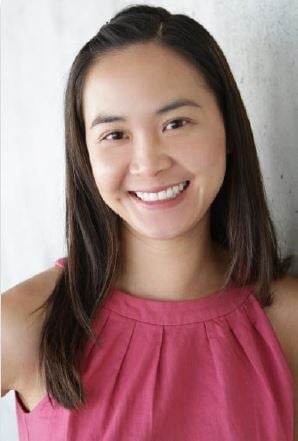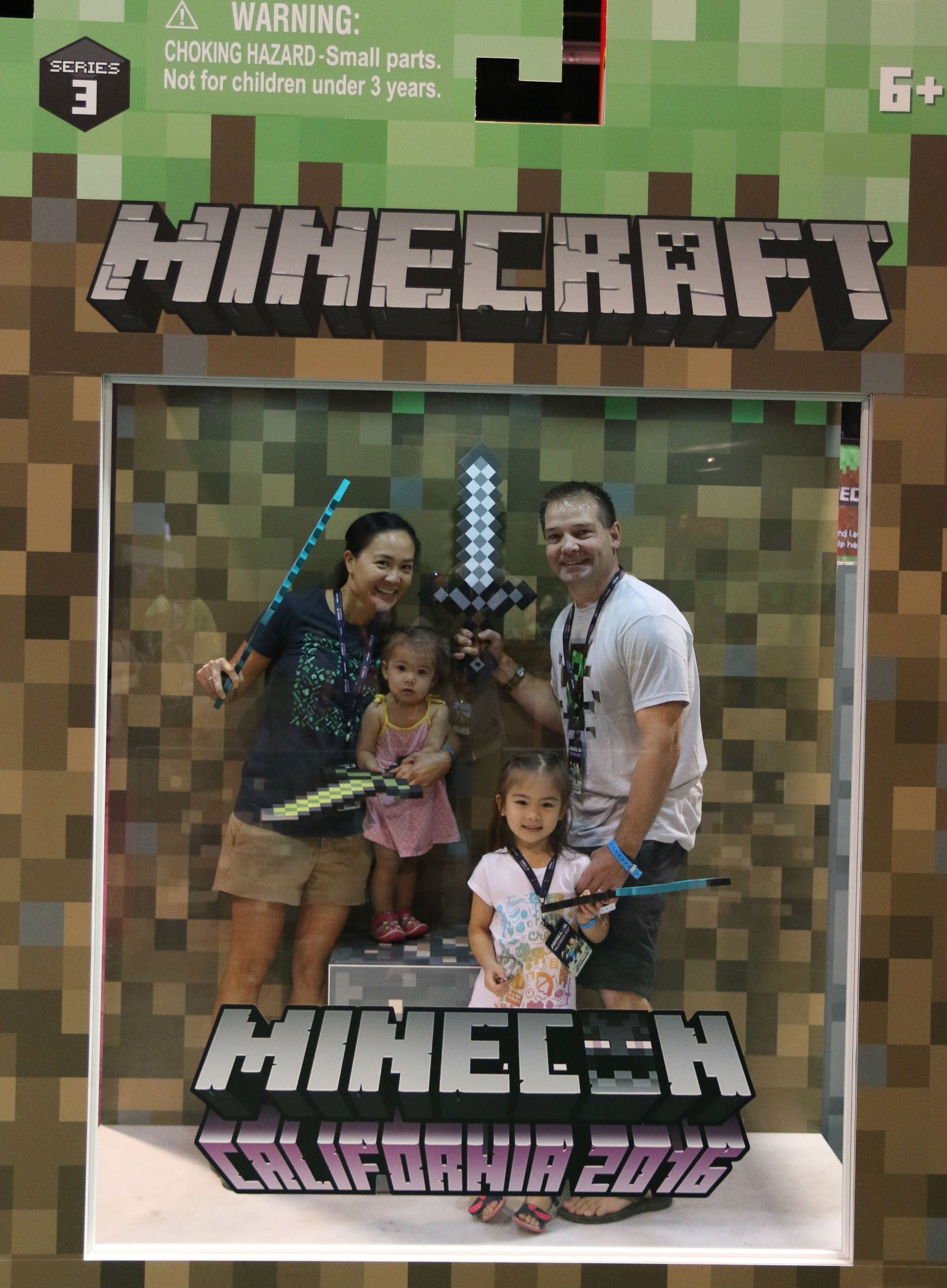Minecraft’s head says American employees should get a gap year like they do in Sweden
In these polarized times, it’s nice to remember that the whole world can still unite behind a good video game. This month I spoke with Helen Chiang, a true visionary who became studio head at Microsoft’s Minecraft in January 2018—making her the only woman of color to lead a major gaming studio in the US.


In these polarized times, it’s nice to remember that the whole world can still unite behind a good video game. This month I spoke with Helen Chiang, a true visionary who became studio head at Microsoft’s Minecraft in January 2018—making her the only woman of color to lead a major gaming studio in the US.
For the unacquainted, Minecraft is a multi-platform game in which players use digital blocks to build interactive digital worlds (essentially, digital Legos). It’s the highest-selling PC game of all time, and second-best selling game in history (Tetris is first). Over 144 million copies have been sold in nearly every country, and 74 million people play the game monthly, across all ages and sociocultural demographics. In the US, 20% of the general population in the plays Minecraft every month, says Chiang.

Having worked at Microsoft since her first internship in 2005 and spending nine years working for Xbox, Chiang was no stranger to the gaming industry or the Minecraft brand. Her rise, however, is groundbreaking. In an interview, Chiang explains what it’s like to break into one of the most male-dominated industries, how Minecraft earned an equal gender balance among players, and why her commitment to giving employees time away from work pays off tenfold.
This interview, which is part of How We’ll Win, Quartz’s year-long project on the fight for gender equality at work, has been edited for length and clarity.
Quartz: Why do you think Minecraft has better gender representation than other games?
Helen Chiang: We’re almost equally represented by female players and male players, and that’s pretty unheard of in the gaming world. I think that’s due to a couple of factors. One is that our brand really stands for gender equality. We have two main characters: Steve, who’s male, and Alex, who’s female. It’s really important to us to use the power of the brand to help breakdown those traditional gender stereotypes, because I remember when I first started working on Minecraft, and we were working on Alex, we had partners who wanted to show Steve as strong and fierce, and they wanted Alex to be more passive and pretty. Those are things that we don’t allow. You know, Alex should be strong, and loud, and fierce, and Alex can do anything that Steve can do. And we want our users to be able to tell any story that they want with these characters.
The other examples I give are when we were working with Lego, and the question came up of whether Minecraft Legos belong in the boys’ Lego aisle, or in the Girls Lego aisle. They really belong in both, and there really shouldn’t be a boys’ or girls’ Lego aisle, there should just be Legos. Another partner, who’s in the retail space said, “I only want to take your boys T-shirt; we think Minecraft is more of a boy’s brand.” And I insisted, “No, we want you to take both the boys and girls T-shirts. And it seems like a small moment, but we want girls to have the same access to opportunities with Minecraft that boys do.

Quartz: What personality traits help you adapt best to situations in which you don’t naturally fit in?
HC: During my time here at Microsoft I’ve had two kids, so I know how hard it can be to come back to work, and to juggle work and life. At work, I’ve been through a number of challenging situations, whether interviewing for a job that I didn’t get, or being passed over for a promotion that a man got.
What all of this has taught me is to have a lot of empathy for other people. I care a lot about people, and I’m always willing to listen. I might not understand the exact situation that someone is going through. But I can try to understand, and I can acknowledge that whatever they’re going through may be different than what I’m going through, but it’s just as important. And I think—especially in tech—that empathy really goes a long way.
Quartz: Are there any specific strategies you’ve employed as a leader to ensure your team becomes more diverse and inclusive?
HC: There’s one strategy that I think about in terms of recruiting. When I went out on parental leave for the first time, I spent a lot of time thinking about whether I was coming back to work, and I met a ton of super skilled women who had taken the time off and were trying to figure out how to come back to work.
So when we are recruiting, I always advocate for “taking the call.” I found that a lot of the resume screeners would say, “I don’t understand why this person has this long gap in their work history,” and I would say “Well of course, they had a baby, it’s not like they went on vacation.” Now we have a lot of returning moms on my team, because when we were screening that was one of the things that we just had a lot of empathy for. And it didn’t mean that they were less committed to their career, it just meant that they had a different life plan, and that’s okay. When you’re recruiting you really need to go beyond the piece of paper, and really consider meeting the person.
Quartz: Have you ever run into trying to speak up and give direct feedback and been shot down or judged?
HC: Oh, absolutely. So there was a two-year period early in my career, and for the first year, my manager gave me feedback that I wasn’t speaking up enough—that I wasn’t visible enough in the room, that I was too quiet, and that I was driving great results. But, if I could just be a bit louder and more aggressive, I would get further. So they hired a coach for me, and we spent the year working on how to interrupt people so I could say things, how to speak over people, and it was terrible. Just terrible.
Then the next year, the same manager pulled me aside and told me, “You’re driving great results, Helen, but people think you’re too loud. You’re too aggressive, and too pushy.” Nobody has ever used the word “pushy” to describe me before. Soon after, I remember reading an article in the Atlantic, which was talking about this “narrow band” of acceptable behavior for women at work, and I thought, “Oh my god, I am living that.”
That was kind of the moment when I realized that really the most effective thing I can do is bring my authentic self to work. It’s way easier, way less exhausting, and I can’t fit into the band that they want me to fit into anyway, so I’m just going to be myself and do the best I can. And that’s worked out very well for me.
Quartz: When you think about tech, and the corporate world at large, what opportunity for change is most important, and most overlooked?
HC: I think here in the US we need more off-ramps from work, or opportunities to take a career break. Whether it’s parental leave, or elder care leave, or a sabbatical, we need opportunities for people to take a break and not have to start over from scratch when they come back. And I’ve really thought about this because half of my Minecraft team is based in Sweden, and I looked at some of these European countries that support a gap year, or more extended parental leave, and it really gives employees the opportunity to really enjoy or immerse themselves in their life experiences—whether it’s having a baby, or something that’s happening in their family.
And I see my Swedish employees coming back more energized, which convinces me that we need to support more flexible work arrangements and allow for something like that in the US. On my team, someone is about to go on sabbatical, and someone else is taking an extended summer leave to go work on a passion project, and I don’t look at this as proof that they’re any less committed to what we’re doing. When they’re at work, they’re working hard and fully committed, but we need to recognize there’s more to life than work, and I think it’s great that they’re invested in things beyond the office. And I know they’re going to come back re-energized and ready to take on that next set of challenges for us.
Quartz: What’s the best advice you’ve ever received?
HC: To always surround yourself with people smarter than you, and make yourself replaceable. I’ve worked with people in the past who will ask, “Why did you hire that person, they’re better than you, they’re smarter than you?” And I think the idea that someone else on your team could do your job threatens these people, because they’re focused on ensuring that they’re not replaceable. But the best advice I’ve ever gotten is that great leaders are replaceable—they’re constantly developing people and investing in training someone else to take their place. Because if no one else can do what you can do, I don’t know how you’re ever able to take that next role.